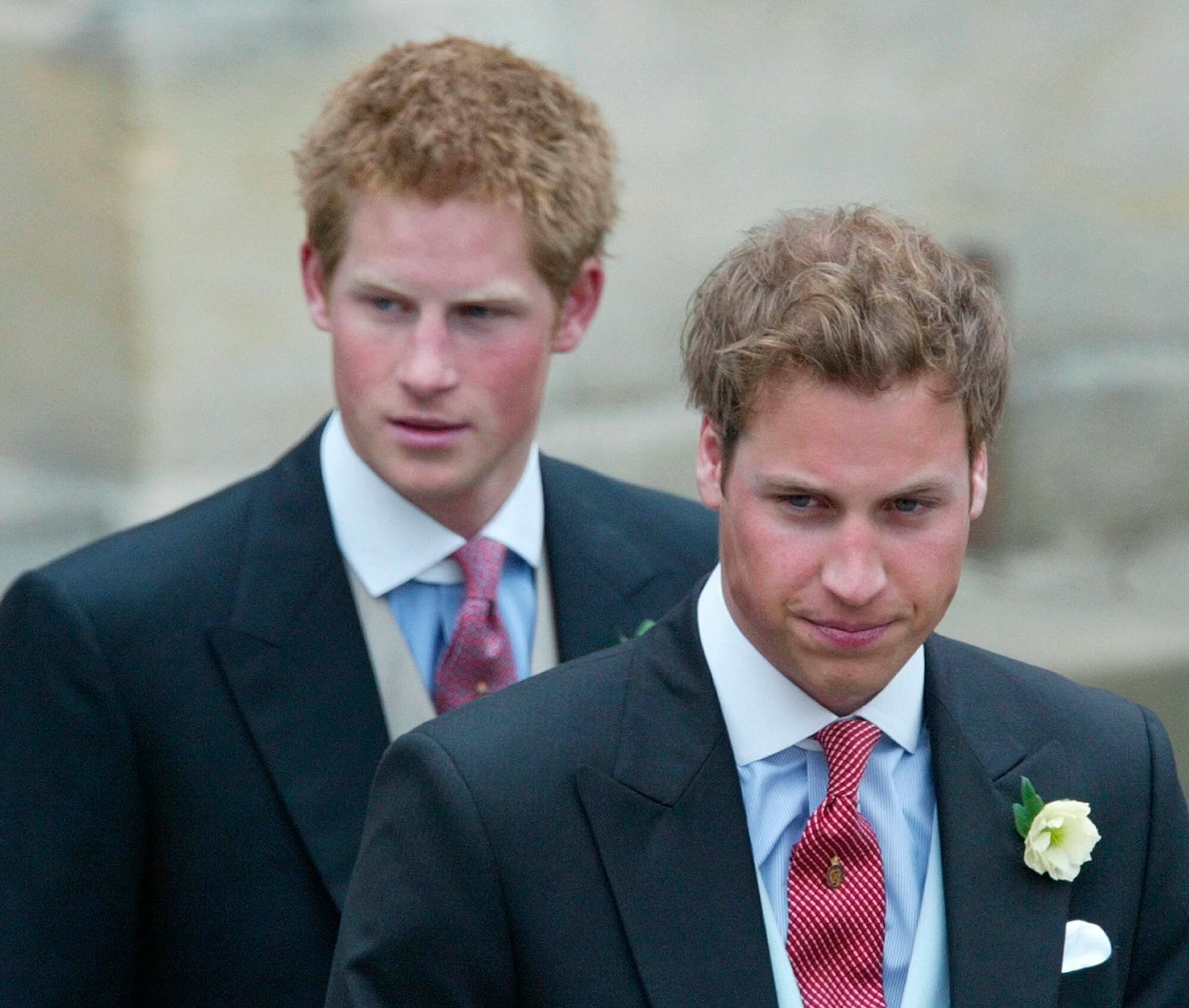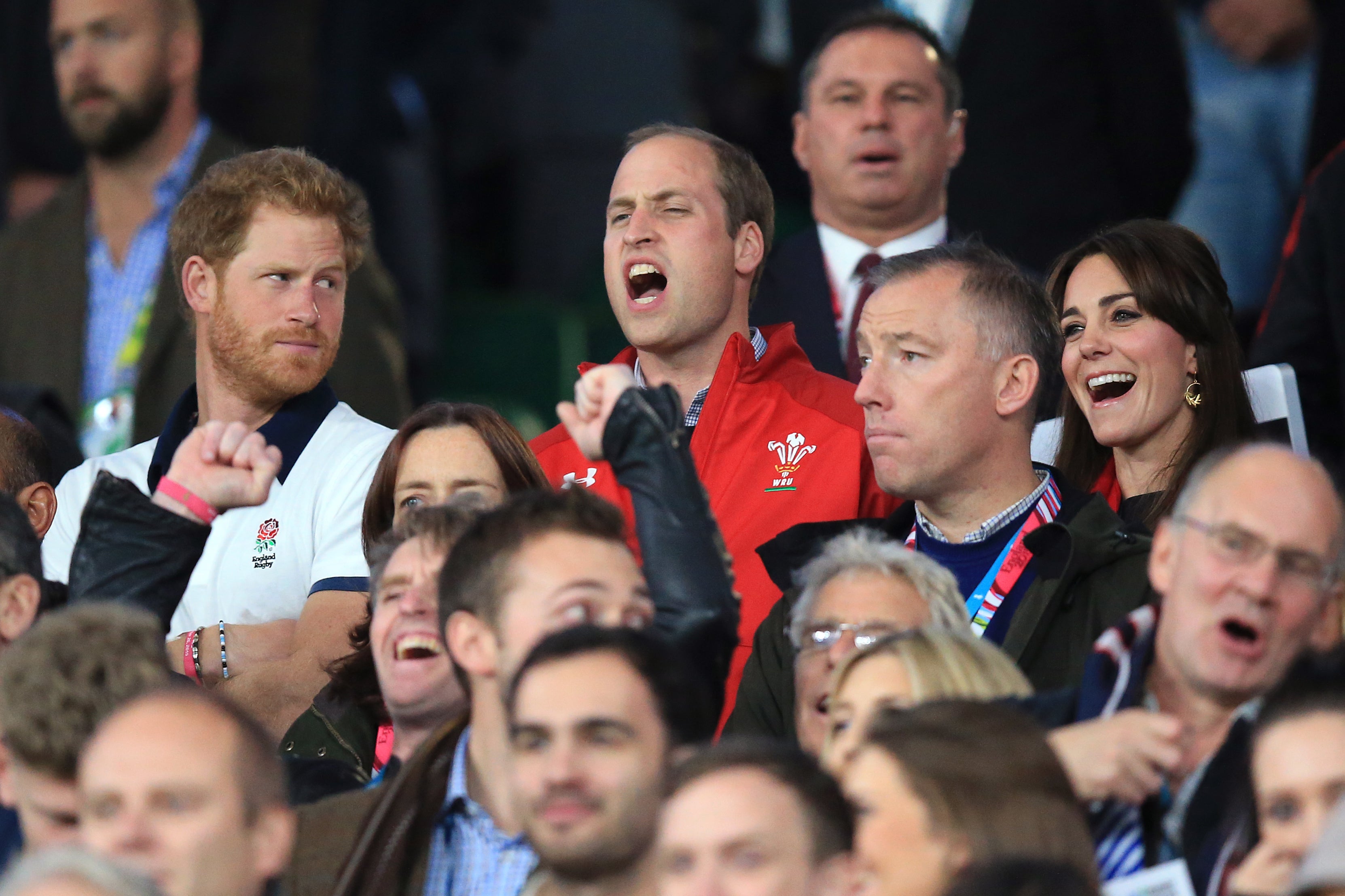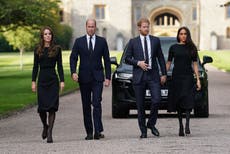Panic attacks, princes and the press: 5 of the most revealing takeaways from Harry’s memoir Spare
In between the louder moments of ‘Spare’ are poignant recollections about the Duke of Sussex’s struggles with his identity, mental health, and the deteriorating relationship with his older brother William
Your support helps us to tell the story
From reproductive rights to climate change to Big Tech, The Independent is on the ground when the story is developing. Whether it's investigating the financials of Elon Musk's pro-Trump PAC or producing our latest documentary, 'The A Word', which shines a light on the American women fighting for reproductive rights, we know how important it is to parse out the facts from the messaging.
At such a critical moment in US history, we need reporters on the ground. Your donation allows us to keep sending journalists to speak to both sides of the story.
The Independent is trusted by Americans across the entire political spectrum. And unlike many other quality news outlets, we choose not to lock Americans out of our reporting and analysis with paywalls. We believe quality journalism should be available to everyone, paid for by those who can afford it.
Your support makes all the difference.Prince Harry’s memoir Spare has officially been released, and with it a number of new headline-generating revelations about his fraught relationship with the royal family.
Unplanned leaks last week gave us an early insight into what would be discussed, but the book can now be read as a whole. Ghostwritten by JR Moehringer, the book is a timeline of sorts; it charts Harry’s younger years, including his memories of his late mother, Diana, along with his struggles dealing with press intrusion, dating while in the public eye, and his years serving in Afghanistan. Later, he details his first dates with Meghan Markle and the growing tensions between him and his older brother William, now Prince of Wales.
In between the louder moments – the press scandals, tears and even allegations of physical fights – are poignant or, arguably, more revealing recollections. The Duke of Sussex is frank about how multiple labels – “thicko”, “naughty”, “cheat” – affected his sense of identity, both as an individual and as the “Spare to the Heir”.
Harry’s hatred of the press began at a young age
From the very first pages of Spare, Harry makes it clear that he blames the British media for many, if not most, of the issues that have plagued him since childhood. He writes of observing his mother in tears at the wheel of her car, with a young Harry and William in the back, surrounded by photographers. He explains how he began to feel “triggered” at the mere sound of a camera clicking, describing photographers “shooting” or “firing” at him and his family, and recalls near-physical incidents with paparazzi, two of whom he labels “Tweedle Dumb and Tweedle Dumber”. He holds them to blistering account for his mother’s death in Paris and, while expressing remorse over the infamous Nazi costume scandal, appears to suggest it only blew up after the media got hold of the photographs.
He was furious and disappointed when his first tour of Afghanistan came to an end, blaming the media again for revealing his location. “An Australian magazine had outed me, told the world I was in Afghanistan,” he writes. “The magazine was inconsequential, so no one noticed at first, but then some bell-end in America picked up the story, posted it on his worthless website, and that got picked up by the crawlers. Now the news was everywhere. The worst-kept secret in the Milky Way was the presence of one Prince Harry in Helmand Province.”
Later, after the news of his and Meghan’s relationship broke, his anger towards the racially loaded headlines mixes with fears for her safety – one incident recalls finding her in tears after being pursued out of Whole Foods in Kensington by four men “screaming her name”. Throughout the book, Harry depicts the press, the tabloids, as a pack of monsters at his heels, out for blood. He also repeatedly condemns the royal family for allowing it to take place. “Darling boy, just don’t read it,” he recalls his father, King Charles, telling him, when he was “in despair” over being labelled “Prince Thicko” for supposedly cheating in an art exam. Later, he comments: “If I die in Afghanistan, I thought, at least I’ll never have to see another fake headline, read another shameful lie about myself.”
“Spare to the Heir”

Frequently raised is Harry’s fear of acquiring yet another new label by the media. “I was forced to sit by and do nothing while the papers called me a cheat and a dummy every day. (Because of an art project! I mean, how do you ‘cheat’ on an art project?),” he writes. “This was the official start of that dreaded title: Prince Thicko. Just as I was cast as Conrade [in a school play] without my consultation or consent, I was now cast in this role. The difference was, we did Much Ado About Nothing for three nights. This had the look of a role that would last a lifetime.”
Afghanistan seems to be the first time he felt able to slip out of those labels and acquire a new role, one he had created for himself rather than been born into. “I was also Widow Six Seven. I’d had plenty of nicknames in my life, but this was the first nickname that felt more like an alias. I could really and truly hide behind it,” he says. “For the first time I was just a name, a random name, and a random number. No title. And no bodyguard. Is this what other people feel like every day? I savoured the normality, wallowed in it, and also considered how far I’d journeyed to find it.”
His love for his brother
While much has been made of Harry’s criticisms of William, there are also countless moments in Spare where he lays bare his deep love of his older brother. “I always felt such love for him,” he writes, recalling childhood antics and silly, innocent squabbles that preceded what is now, arguably, the biggest war between brothers since the Gallaghers broke up Oasis.
Feeling like a third wheel

After binge-watching the entirety of Friends in 2013, Harry decides he’s “a Chandler” as he contemplates his life as a “confirmed bachelor”. He jokes that the public would be shocked at how decidedly unglamourous his life is, living alone in a basement flat at Kensington Palace, folding laundry, visiting Tesco and getting into a spat with his neighbour.
He sounds crushed after sharing his vision of what life as an uncle to William and Kate’s first son George might be like: “Holding a bottle of wine and an armful of kiddie presents. Dropping to the floor and wrestling with little George.”
The reality, he claims, was very different. “They were half a football pitch away, just beyond a stone courtyard, so close that I could see their nanny pass by all the time with the pram, and I could hear their elaborate renovations. I assumed they’d have me over any minute now, Any day. But day after day it didn’t happen. I get it, I thought. They’re busy! Building a family! Or maybe… they don’t want a third wheel?”
Grappling with loneliness, trauma and PTSD
It was apparently Meghan who persuaded Harry to try therapy again. Before this, however, Harry writes of experiencing multiple panic attacks (he claims William once laughed at him after he had one after delivering a speech). He was “in trouble” by late 2013, caught between “bouts of debilitating lethargy and terrifying panic attacks”.
He says the simple act of putting a suit on in the morning became a “trigger”. And after William allegedly grabbed him during a row and knocked him to the ground, Harry says it was his therapist who helped him feel “proud” of himself for not fighting back.
Follow the latest updates and reactions to Harry’s memoir in our liveblog




Join our commenting forum
Join thought-provoking conversations, follow other Independent readers and see their replies
Comments